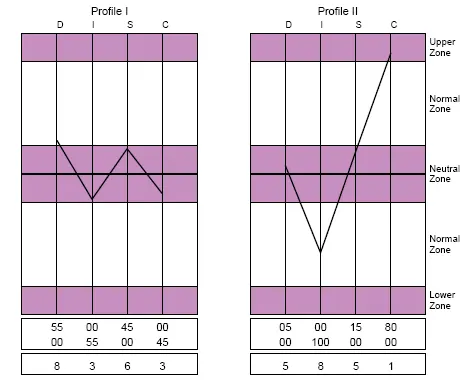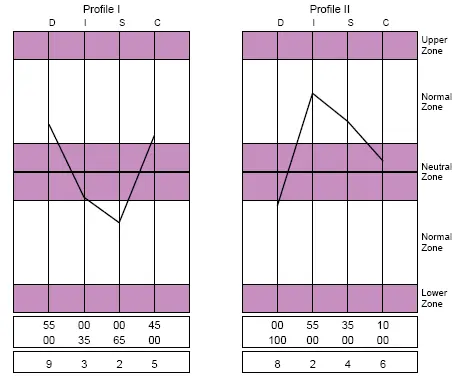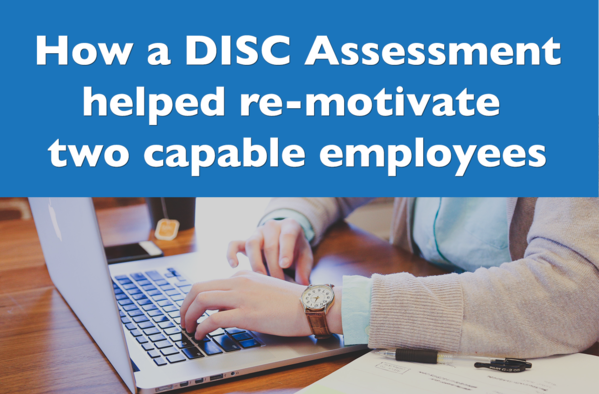How a DISC Assessment Helped Re-Motivate Two Capable Employees
Clients often remind us of the many valuable ways a DISC assessment employee motivation strategy can be applied within an organisation. Extended DISC® Behavioural Analysis Reports offer insights that many businesses have not previously considered, especially when it comes to understanding what motivates employees and how to align roles with natural behavioural strengths.
In early December, we were contacted by a human resources consultant who had recently switched to Extended DISC®. He had used another DISC-based system for many years but was impressed by Extended DISC® and its ability to customise reports from more than 1,500 competencies.
Because his client had not been using Extended DISC® during recruitment, staff selection had not always aligned with behavioural strengths. As a result, two executives in key roles were not performing as expected, and the consultant was brought in to evaluate the situation.
Using Extended DISC® to Understand the Management Team
To gain clarity, the consultant asked each member of the management team to complete the online questionnaire. Once the Behavioural Analysis Reports were generated, he discovered something unexpected.
Two executives were working in roles that did not match their natural behavioural style. This left them operating outside their comfort zone and using more energy than necessary. Their natural strengths were also not being used effectively.
These executives held the roles of Sales Manager and General Manager.
When Promotion Creates Misalignment
The Sales Manager’s profile suggested he was a highly skilled technician who had been promoted because of his technical expertise. Although the promotion had good intentions, it placed him in a role that did not suit his behavioural tendencies.


The same issue affected the General Manager. He had been a successful salesperson and was promoted based on his strong sales record. Although this approach often works, the general manager role in this case required significant dominant traits. His profile showed that these traits were not among his natural strengths.
Identifying and Addressing Stress Through FinxS Reporting
Another factor that impressed the consultant was the way FinxS Reports can be customised to include competencies related to stress.
The Sales Manager showed uncertainty about his role, but not a high level of stress. The General Manager, however, displayed several signs of stress. The FinxS competencies helped the consultant identify the likely causes of the stress, recognise the indicators of stress, and develop strategies to alleviate it.
Would you like to discuss this topic more?
A New Approach to Hiring and Promotion
The consultant later contacted us to share that his client had decided to use Extended DISC® for all future senior recruitment and promotion decisions. Understanding both the unconscious natural style, known as Profile II, and the adjusted conscious style, known as Profile I, provided a level of insight that their previous assessment tools did not offer.
Their old reports only reflected the adjusted style and did not allow for comparison between the natural and conscious styles.
Restructuring Roles to Retain Talent
Based on the findings, the consultant recommended updating both job descriptions and restructuring each role to better align with the executives’ strengths. He believes that both individuals would have eventually left the organisation if these changes had not been made.
The Cost of Misaligned Promotions
This case illustrates a common challenge. Many organisations promote individuals into positions that do not match their behavioural style simply because they performed well in a different role. The result is often reduced motivation, increased pressure, and a higher risk of losing valuable, experienced team members.
When behavioural style is properly understood and considered, organisations can place people in roles where they naturally excel, which helps improve motivation and reduce turnover risk.
Find the Right People for the Right Roles
Unlock the full potential of your team with data-driven behavioural insights that simplify hiring, promotion, and development decisions.
Get Started with Extended DISC®!






